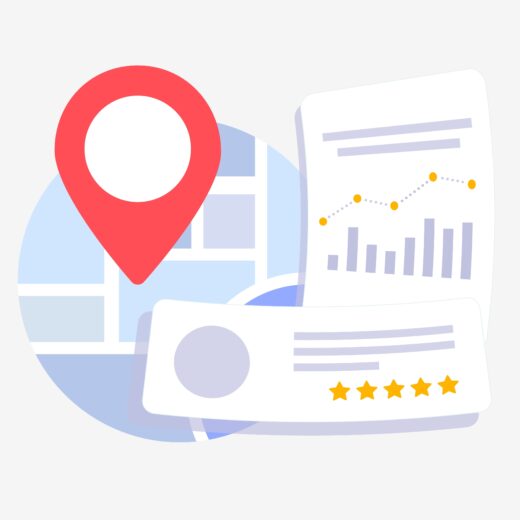In the realm of digital marketing and SEO, Google Search Console is an indispensable tool that offers a treasure trove of insights to enhance your website’s performance and visibility.
Whether you’re a seasoned SEO expert or a beginner, understanding how to leverage Search Console can significantly impact your site’s search engine rankings and overall success. In this blog post, we’ll explore how to use Google Search Console to your advantage, from setting it up to analysing data and making strategic decisions.
Setting Up Google Search Console
Before diving into the features and benefits, let’s start with the basics: setting up your Google Search Console account.
- Sign In to Google Search Console: Head over to Google Search Console and sign in with your Google account.
- Add Your Property: Click on the “Add Property” button and enter your website’s URL. You have two options: the domain property, which covers all subdomains and protocols, or the URL prefix property, which is specific to the exact URL entered.
- Verify Ownership: Google offers several methods to verify your website ownership:
- HTML file upload: Upload a verification file to your website.
- HTML tag: Add a meta tag to your site’s homepage.
- Google Analytics: Use your Google Analytics tracking code.
- Google Tag Manager: Use your Tag Manager container snippet.
- Domain name provider: Verify through your domain registrar.
Choose the method that best suits your technical capabilities and website setup. Once verified, you can start exploring the tool’s features.
Key Features of Google Search Console
Performance Reports
The Performance Report is one of the most valuable features of Search Console, providing insights into how your site performs in Google Search.
- Search Queries: See the exact queries that bring traffic to your site. Analyse which keywords have high impressions but low click-through rates (CTR) to identify optimisation opportunities.
- Clicks and Impressions: Track the number of clicks and impressions your site receives. This data helps you understand your site’s visibility and user engagement.
- Average Position: Monitor the average position of your website for specific queries. This metric helps you gauge your SEO efforts and adjust strategies accordingly.
- CTR: Measure the click-through rate for your queries. A low CTR might indicate a need to improve your meta descriptions and titles to make them more appealing.
Index Coverage
The Index Coverage report helps you understand how well your site is indexed by Google.
- Errors: Identify pages that Google couldn’t index due to errors. Fixing these issues ensures that your valuable content is accessible to users.
- Valid with Warnings: Pages that are indexed but have issues that might affect their performance. Investigate and resolve these warnings to maintain optimal site health.
- Excluded: Pages intentionally excluded from the index. Ensure that important pages are not mistakenly excluded.
URL Inspection Tool
The URL Inspection Tool provides detailed information about how Google views a specific URL on your site.
- Crawl Status: Check if a URL is successfully crawled by Google. If not, identify and fix the issues.
- Indexing Status: See if a URL is indexed and, if not, understand why. You can also request indexing for new or updated pages.
- Enhancements: View details about enhancements like AMP, mobile usability, and structured data. Fix any issues to improve user experience and search performance.
Sitemap Submission
Submitting a sitemap helps Google understand the structure of your site and index it more efficiently.
- Add a Sitemap: Ensure your sitemap is up-to-date and submit it through Search Console. This step accelerates the indexing process for new content.
- Sitemap Report: Monitor the status of your submitted sitemaps. Address any errors or warnings to ensure comprehensive indexing.
Mobile Usability
With the increasing importance of mobile-friendly websites, the Mobile Usability report is crucial.
- Mobile Usability Errors: Identify and fix issues that affect the mobile experience of your site. Ensuring a seamless mobile experience improves user satisfaction and SEO performance.
Core Web Vitals
Core Web Vitals are a set of metrics that impact your site’s ranking and user experience.
- LCP (Largest Contentful Paint): Measure how long it takes for the main content of a page to load. Aim for an LCP of 2.5 seconds or less.
- FID (First Input Delay): Measure the time it takes for a page to become interactive. Aim for an FID of less than 100 milliseconds.
- CLS (Cumulative Layout Shift): Measure the visual stability of a page. Aim for a CLS of less than 0.1.
Improving these metrics can boost your site’s performance and ranking in search results.
Using Search Console Data to Improve SEO
- Identify Top-Performing Pages: Use the Performance Report to identify pages with high traffic and rankings. Analyse what makes these pages successful and replicate the strategies on other pages.
- Optimise Underperforming Keywords: Find keywords with high impressions but low CTR. Improve meta titles and descriptions to make them more compelling and relevant to user intent.
- Fix Indexing Issues: Regularly check the Index Coverage report for errors and warnings. Resolve issues promptly to ensure your entire site is indexed and accessible.
- Enhance Mobile Usability: Use the Mobile Usability report to identify and fix mobile-specific issues. A mobile-friendly site is crucial for user experience and SEO.
- Monitor and Improve Core Web Vitals: Track your Core Web Vitals performance and make necessary adjustments to improve loading speed, interactivity, and visual stability.
- Leverage URL Inspection Tool: Use the URL Inspection Tool to understand how Google views specific pages. Request indexing for new or updated content to speed up the process.
Google Search Console is a powerful tool that provides invaluable insights into your website’s performance and potential areas for improvement. By regularly monitoring and analysing the data provided, you can make informed decisions that enhance your site’s SEO, user experience, and overall success. Start using Google Search Console to your advantage today, and watch your website climb the search engine rankings.








